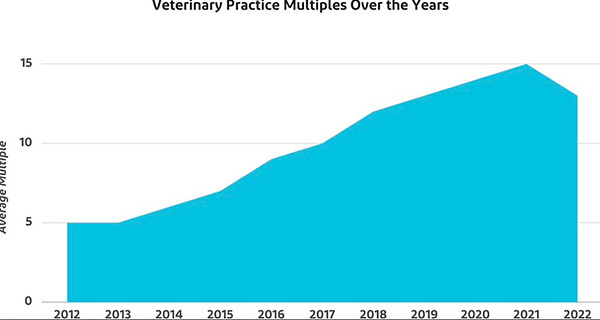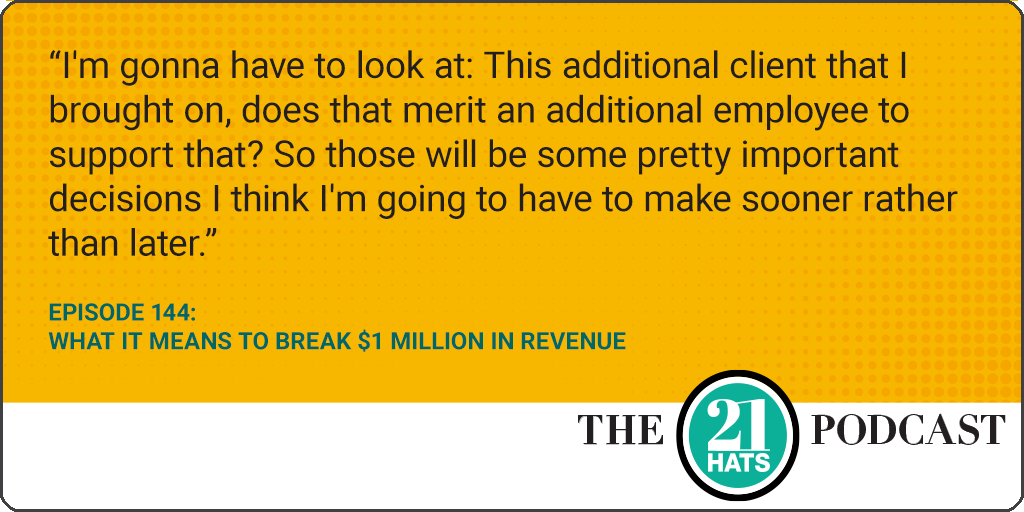The Good Thing About Bad Reviews
No business enjoys getting bad online reviews, but they actually can provide credibility and even drive growth.
Good Morning!
Here are today’s highlights:
Some customers feel as though they’re being punished for their loyalty.
There are new signs that the job market may finally be softening.
Why are return-to-office rates much higher in Paris and Tokyo than in the U.S.?
There’s a tiny home boom in California.
MARKETING
Restaurant chains are finding ways to annoy their most loyal customers: “During the pandemic, many fast-food chains and restaurants used rewards programs to encourage customers to use mobile apps. It helped speed up ordering and reduced bottlenecks at drive-through lanes and pickup counters. ... But now, restaurants are changing up the rewards programs, much to the annoyance of their loyal customers.”
“The companies say inflation is to blame, that the costs of all those free burgers and Frappuccinos are adding up. But changes to rewards programs risk angering customers, sometimes the most loyal ones, who are already irritated by sharp price increases for their favorite foods and drinks in the past year.”
“In October, Dunkin’ drew criticism across social media when it made changes to its loyalty program. Customers who used to earn a free beverage, including fancy premium drinks, after spending about $40 now have to spend about $90 to earn a signature latte.”
“[At Starbucks] basic drinks like coffee and tea that were once redeemable for 50 stars, or after a customer spent as much as $50, now require 100. Fancy lattes and Frappuccinos climbed from 150 stars to 200.”
“‘I was shocked at Starbucks,’ [said Kate Hogenson, principal consultant at the Mallett Group, a brand-loyalty consulting firm]. ‘It looked like something that had been written by their lawyer, and it was buried in the holiday time period.’” READ MORE
CUSTOMER SERVICE
There are good things about bad online reviews: “Most consumers read reviews before purchasing a product or service, and they don't seek out only positive ones. In a 2021 PowerReviews survey, at least 96 percent of respondents said they sometimes looked for negative reviews, while about half of them said they were suspicious of businesses with perfect ratings. ‘A small amount of negative reviews helps legitimize the authenticity of your brand's review pages, making it not only an inevitable part of business but one that is respected by consumers,’ Adam Leff, a cofounder and the chief strategy officer of the reputation-management firm Merchant Centric, told Insider.”
“One of the biggest benefits of negative reviews is that they identify areas where companies can improve, Leff said. Business owners can use this information to make changes to boost operations and create better customer experiences.”
“When he gets a negative review, [Ben Kuhl, CEO of Shelf Expression] said, he responds as quickly as he can. He acknowledges the review and expresses regret, and if the company makes a mistake, he apologizes and offers a solution.”
“‘The positive reviews are great, but we don't grow from those,’ Kuhl said. ‘We grow from the negative reviews and the feedback they provide, especially if the feedback is warranted.’” READ MORE
HUMAN RESOURCES
The number of job postings may finally be declining: “Demand for U.S. workers shows signs of slowing, a long-anticipated development that is showing up in private-sector job postings even while official government reports indicate the labor market keeps running hot. ZipRecruiter and Recruit Holdings, two large online recruiting companies, say their data show the number of job postings is declining more than Labor Department reports of job openings.”
“Hiring surged in January, the Labor Department also reported, as restaurants, hospitals, nursing homes, and child-care centers staffed up, more than offsetting cuts announced by employers such as Amazon.com and Microsoft.”
“The data from Recruit Holdings, the parent company of U.S. job-listing site Indeed, and ZipRecruiter, tell a somewhat different story. ZipRecruiter said its job postings in December were 26 percent above pre-Covid levels and fell further in January.”
“Indeed’s data show that companies are cutting back in particular on sponsored job postings, the kind they pay for, meaning they have been less willing to invest heavily to fill open positions.” READ MORE
But especially with climate laws driving demand, there’s an electrician shortage: “Electricians say they are booked several months out and struggling to find enough workers to keep up with demand. Many are raising wages and prices and worried that they won’t be able to keep up as government climate incentives kick in. ‘I’m tired of telling people I can’t help them,’ said Brian LaMorte, co-owner of LaMorte Electric Heating and Cooling in Ithaca, N.Y., which does residential heat-pump installations and electric-service upgrades. His six-person company is booked roughly six months out, so he has been referring potential new customers to other firms in the area.”
“The scarcity is part of a nationwide labor shortage and most acute in the Northeast and California, where demand for green-energy products is highest, in part due to state incentives. Some economists expect the pinch to spread across the country as incentives from the new federal law known as the Inflation Reduction Act kick in.”
“Industry analysts say it will be difficult to meet that demand, particularly because more electricians retire every year than are replaced, and many retired during the coronavirus pandemic.”
“The average annual electrician salary rose from roughly $50,000 to about $60,000 from 2018 to 2022, an increase roughly in line with the national average.” READ MORE
THE ECONOMY
A big increase in the supply of rental units is hitting the market: “Apartment rents fell in every major metropolitan area in the U.S. over the past six months through January, a trend that is poised to continue as the biggest delivery of new apartments in nearly four decades is slated for this year. Renters with new leases in January paid a median rent that was 3.5 percent lower than they would have paid last August, according to estimates from listing website Apartment List. It was the first time in five years that rent fell every month over a six-month period, according to the same estimates.”
“The softening rental market follows an unprecedented run for the apartment and home-rental industry put into motion by the pandemic. Pent-up demand for housing exploded in the months after the introduction of Covid-19 vaccines in late 2020 and a surge in people searching for apartments lifted rents 25 percent over two years.”
“Now, recent declines are a sign that many tenants have maxed out on how much of their income they can devote to rent, while the specter of layoffs has created new concerns for some.”
“‘Renters facing lease renewals suddenly have a lot more options,’ RealPage economist Jay Parsons said in a report. Landlords are likely to start dropping their renewal rents to prevent tenants from leaving, he added.” READ MORE
REAL ESTATE
California is experiencing a boom in tiny homes: “Over the past two years, tiny homes, known as accessory dwelling units, or ADUs, have filled backyards from San Jose to San Diego after state lawmakers began breaking down barriers for homeowners to build on their limited acreage. Single-family-zoning rules — often cited as a contributor to the affordable-homes shortage — were loosened under a series of laws enacted as the pandemic was exacerbating the housing crisis.”
“They all have the trappings of a regular home — kitchens, sleeping areas, and running water — just downsized to as little as 150 square feet.”
“While California's ADU revolution is in its nascent phase, it offers a glimpse into how other states could implement their own affordable-housing strategies. Oregon, Maine, and Nebraska, as well as cities like Miami, have enacted laws similar to California's.”
“Even though ADU construction is legal at the state level, homeowners still have to comply with local ordinances — some of which make it very hard to build. And building an ADU usually costs between $100,000 and $300,000, which is financially prohibitive for many people.” READ MORE
SELLING THE BUSINESS
Fueled by private equity, the multiples for veterinarian practices have done quite well:
OFFICE SPACE
Return-to-office rates are much higher in Paris and Tokyo than in the U.S.: “Americans have embraced remote work and turned their backs on offices with greater regularity than their counterparts overseas. U.S. office occupancy stands at 40 percent to 60 percent of pre-pandemic levels, varying within that range by month and by city. That compares with a 70 percent-to-90 percent rate in Europe and the Middle East, according to JLL, a property-services firm that manages 4.6 billion square feet of real estate globally. Return to office was even more common in Asia, JLL said, where rates ranged from 80 percent to 110 percent—meaning that in some cities more people are in the office nowadays than before the pandemic.”
“Bigger homes, longer commutes and a tighter labor market help explain why Americans spend less time in the office than Europeans and Asians, workplace consultants say.”
“This divergence in return-to-office habits not only benefits overseas landlords more than their U.S. peers. It has a direct impact on how quickly metro areas rebound from the pandemic’s economic shock.”
“Cities in Europe and Asia have bounced back relatively well. But empty office buildings and missing commuters have undermined recoveries in U.S. cities such as New York and San Francisco, where local restaurants, shops and other businesses that rely on office workers as their primary customers have suffered.” READ MORE
OPPORTUNITIES
An Ohio developer sees opportunity in serving the LGBTQ community: “In Lakewood, Ohio, just a few miles west of Cleveland, Studio West 117 opened a walkable multi-use space called the Fieldhouse in October. It’s the first of a three-phase development process to culminate in a more than 300,000-square-foot community complex featuring a collection of sports, dining, entertainment, and housing alongside identity-affirming businesses and social services. Current retail tenants include a resale store that focuses on trans-specific and gender-affirming clothing, an LGBTQ+ minority and women-owned barbershop, a podcast studio, and a maker’s market.”
“The Fieldhouse brings the first 30,000 square feet of the complex to life with its three restaurants, a gym, demonstration kitchen, community garden, outdoor courtyard, a rooftop patio, event spaces, and more.”
“The thriving Cleveland chapter of Stonewall Sports, an LGBTQ+ community-based sports league, brings dodgeball and other sports to the mix while the restaurants and event spaces host salsa nights and drag bunches.” READ MORE
THE 21 HATS PODCAST
What It Means to Break $1 Million in Revenue: This week, in episode 144, Liz Picarazzi and Sarah Segal talk about their attitudes toward growth, including how they set goals, the tension between revenue and profit, deciding when growth requires additional bodies, choosing between contractors and employees, and how they would use the money if someone were to give them a million dollars to invest in their business. Plus: What will it take for them to consider themselves successful?
You can subscribe to the 21 Hats Podcast wherever you get podcasts.
Thanks for reading, everyone. — Loren




